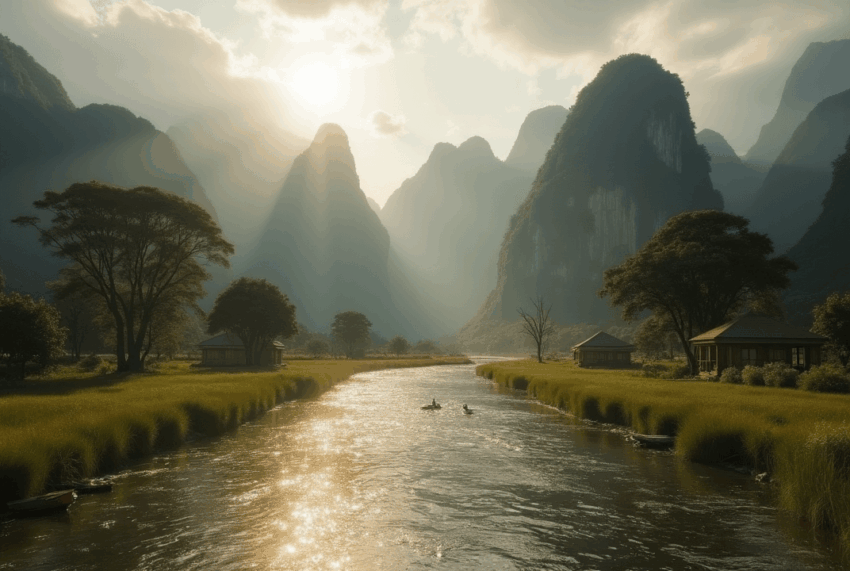Vietnam’s Groundbreaking Visa Exemption for Global Elite Boosts Economic Growth and Diplomatic Ties


On August 8, 2025, Vietnam’s government issued Decree 221, which regulates temporary visa exemptions for foreigners deemed crucial to the country’s socio-economic development. The new policy is designed to streamline the entry process for individuals whose contributions to Vietnam’s growth are considered valuable. The decree outlines six distinct categories of individuals who will benefit from these exemptions.
Key Categories of Visa Exemptions
The decree provides temporary visa exemptions for a broad range of individuals across various sectors, including government, academia, business, culture, and more. The following sections provide a detailed overview of the categories and eligibility requirements.
Government and High-Ranking Officials
The first category exempted from visa requirements includes individuals who are guests of Vietnam’s high-ranking government officials. This group encompasses those visiting on official government business or diplomatic assignments. Specifically, visa exemptions apply to visitors who are invited by top leaders such as the Party General Secretary, the President, the Prime Minister, the Chief Justice of the Supreme People’s Court, ministers, provincial Party Secretaries, and chairpersons of People’s Councils and Committees at both provincial and city levels.
This move ensures that foreign dignitaries and government representatives can easily enter the country for important political, economic, or diplomatic events, fostering smoother international relations and collaboration.
Scholars, Experts, and Elite Professionals
The second group of individuals eligible for visa exemptions includes scholars, experts, scientists, university professors, and members of research institutes. This category also covers chief engineers and highly regarded professionals within digital technology sectors. To qualify for exemption, these individuals must have received notable international recognition, including prestigious awards or accolades that highlight their expertise and contributions on a global scale.
By targeting individuals who are leaders in their fields, Vietnam aims to attract top-tier talent to support its innovation, technological development, and academic growth.
Investors and Business Leaders
Visa exemptions will also apply to high-level investors and leaders of large corporations. Specifically, investors whose companies are listed among the top 100 global enterprises by market capitalization, as recognized by reputable international organizations, will benefit from this policy. This includes individuals at the helm of multinational firms who can significantly contribute to Vietnam’s economic development.
By facilitating the entry of these influential business figures, Vietnam seeks to strengthen its position as an attractive destination for investment and global commerce, further driving its economic growth.
Cultural, Sports, and Tourism Figures
Cultural, sports, and tourism professionals who have made a positive impact on the public will also be granted visa exemptions. Notably, this category includes football players ranked among the top 100 globally, who are invited to compete in domestic leagues or engage in exchange programs with local football clubs. The inclusion of sports figures aligns with Vietnam’s broader strategy to enhance its global sports presence, particularly in football.
Additionally, cultural and artistic figures who contribute positively to Vietnam’s international image are also eligible for visa exemptions, strengthening the country’s global cultural exchange initiatives.
Honorary Consuls and Guests from Approved Institutions
Another significant group eligible for exemption includes honorary Vietnamese consuls abroad. These individuals serve as vital links between Vietnam and other nations, promoting the country’s interests and fostering diplomatic relations. In addition to honorary consuls, individuals invited by specific research institutes, universities, and large enterprises, as approved by the government, will also benefit from this policy.
This broadens the scope of visa exemptions, helping facilitate smoother exchanges between Vietnam and international institutions, particularly in academic and business circles.
Special Exemptions for Foreign Affairs and Socio-Economic Purposes
Finally, the decree allows for additional visa exemptions on a case-by-case basis, determined by the Minister of Public Security. This category is reserved for individuals whose entry into Vietnam is deemed essential for foreign affairs or socio-economic purposes, broadening the policy’s flexibility to accommodate a wide range of international visitors.
Visa Exemption Cards and Validity
To ensure the proper implementation of the visa exemptions, the government will issue visa exemption cards. These cards will be available in two formats: electronic cards and hard cards equipped with chips. Both formats will carry equal legal validity, ensuring that travelers benefit from a streamlined and efficient process.
The visa exemption will be valid for a period not exceeding five years, although the exemption period must be at least 30 days shorter than the remaining validity of the individual’s passport. This ensures that the visa exemption is aligned with international travel standards while maintaining adequate monitoring and regulation.
Background and Government’s Strategy
This policy comes in response to the directives issued by Prime Minister Pham Minh Chinh in April 2025, urging relevant ministries and agencies to explore and develop visa exemption policies for influential international visitors. The initiative underscores Vietnam’s focus on fostering greater global collaboration in various sectors, including politics, business, education, and culture.
By offering visa exemptions to key international figures, Vietnam is positioning itself as an increasingly open and accessible hub for global talent, investment, and cultural exchange. The government aims to create a welcoming environment for individuals who can contribute to the country’s growth and development in both the short and long term.
Conclusion
Vietnam’s Decree 221, which introduces temporary visa exemptions for influential foreign visitors, represents a strategic move by the government to bolster its socio-economic development. By facilitating the entry of individuals from government, academia, business, culture, and sports, the policy aligns with Vietnam’s broader goals of attracting global talent, investment, and fostering diplomatic relations. The exemption policy ensures that key figures can easily visit the country to contribute to its growth while enhancing Vietnam’s global standing across multiple sectors.
The post Vietnam’s Groundbreaking Visa Exemption for Global Elite Boosts Economic Growth and Diplomatic Ties appeared first on Travel And Tour World.






